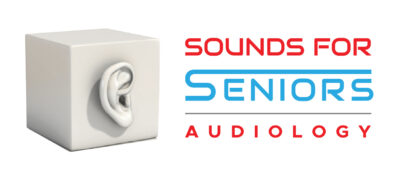What people hear and do not hear can have a direct effect on their balance, according to new research from the New York Eye and Ear Infirmary of Mount Sinai (NYEE). The research, published in the March 12 issue of JAMA Otolaryngology-Head & Neck Surgery, provides a better understanding of the relationship between hearing loss and why people fall, especially in the elderly population. The findings could lead doctors to screen for hearing loss in patients at high risk for falls, detect hearing loss in its early stages, and treat it quickly.
Falls are the leading cause of deadly injuries in the US
In this study, a team of researchers from Mount Sinai and New York University’s Steinhardt School of Culture conducted a comprehensive analysis of all published research since inception (PubMed, Cochran Database of Scopus) that investigated the association between sound and standing balance. They looked at 28 medical articles involving more than 700 patients. Many of the studies focused on fields that clinicians who treat falls would not typically encounter, such as sound engineering, computer science, physics, and psychology. The authors combined all of the studies and looked for trends in the data.
The studies analyzed mostly healthy adults, but also looked at patients with congenital blindness, vestibular loss (damage to the inner ear causing balance and eye issues, including vertigo), and different levels of hearing loss. All research examined how sounds affected someone’s ability to keep their balance while standing still, often with their eyes closed and when standing on a pliable, squishy surface. They also looked at how wearing noise-canceling headphones (a complete lack of sound) affected balance. Some studies played white noise or static, while others used environmental sounds such as cocktail party chatter or running water. They found that people had more difficulty staying balanced or standing still on an uneven surface when it was quiet, but had better balance while listening to sounds.
The authors found that the type of sound was important when it comes to balance. More specifically, continuous background noise (usually static) was the most helpful for subjects to keep their center of gravity. Some types of sounds actually caused poor balance; for example, some people who listened to sound jumping back and forth through headphones (i.e. beeping that went from left to right) had difficulty standing upright.
The authors believe this may be because sound can act as an “auditory anchor.” More specifically, people use sounds like white noise to help unconsciously create a mental image of the environment to keep ourselves grounded. The research analysis also showed that sound became more important for balance when the subjects were given difficult balancing tasks (e.g., standing on a moving floor) or if the patients had pre-existing sensory issues. When people with vision loss, hearing loss, or balance problems heard stationary sounds, their posture dramatically improved. This suggests people rely more on hearing when other senses are impaired.
The analysis highlighted large gaps in research on hearing loss and balance. Future studies are needed that look at different levels of hearing loss, and how hearing aids and cochlear implants affect balance. The researchers added that more studies using everyday sounds like traffic or shopping malls or airports are necessary to understand more about fall risks in people with hearing loss. Also, more studies focused on older adults need to be conducted.
Story Source:
Materials provided by The Mount Sinai Hospital / Mount Sinai School of Medicine. Note: Content may be edited for style and length.

